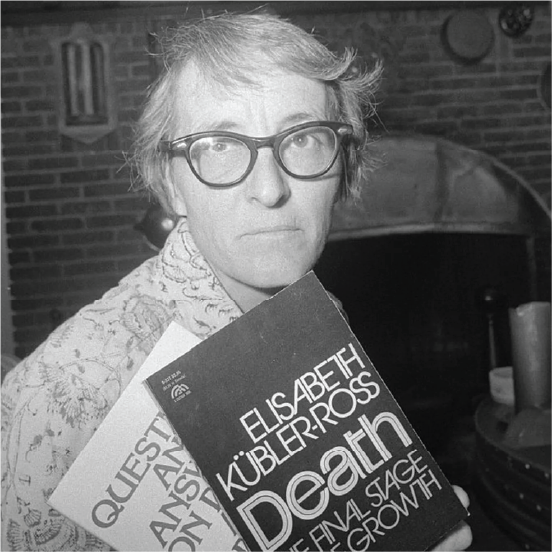Denial
The first reaction is denial. In this stage, individuals believe the precipitating event is somehow mistaken, and cling to a false, preferable reality. Some may also isolate themselves, avoiding others who may have accepted what is happening. This stage is usually a temporary defense, so long as the person has adequate time to move amongst the stages as they contemplate death. In her book, Kübler-Ross states that technological advancements have caused people to become fearful of violent, painful deaths; therefore, in order to protect the psychological mind, they deny the reality of their own inevitable death.
Anger
When the individual recognizes that denial cannot continue, they become frustrated, especially at proximate individuals. Certain psychological responses of a person undergoing this phase would be: "Why me? It's not fair!"; "How can this happen to me?"; "Who is to blame?"; "Why would this happen?". Some may lash out at loved ones, medical staff, and other family. In Kübler-Ross's other book, Questions and Answers on Death and Dying, she emphasizes the need for people to do their best to let those who are in this stage feel their feelings and try not to take the anger personally.
Bargaining
The third stage involves the hope that the individual can avoid a cause of grief. Usually, the negotiation for an extended life is made in exchange for a reformed lifestyle. People facing less serious trauma can bargain or seek compromise. Examples include the terminally ill person who "negotiates with God" to attend a daughter's wedding, an attempt to bargain for more time to live in exchange for a reformed lifestyle or a phrase such as "If I could trade their life for mine".
Depression
"I'm so sad, why bother with anything?"; "I'm going to die soon, so what's the point?"; "I miss my loved one; why go on?"During the fourth stage, the individual despairs at the recognition of their mortality. In this state, the individual may become silent, refuse visitors and spend much of the time mournful and sullen.
Acceptance
"It's going to be okay."; "I can't fight it; I may as well prepare for it." In this last stage, individuals embrace mortality or inevitable future, or that of a loved one, or other tragic event. People dying may precede the survivors in this state, which typically comes with a calm, retrospective view for the individual, and a stable condition of emotions.
Kübler-Ross identified additional stages of emotional response beyond the five widely recognized stages of grief, illustrated in a full-page graphic on page 251 of the 50th anniversary edition of On Death and Dying. Alongside the well-known stages of denial, anger, bargaining, depression, and acceptance, Kübler-Ross detailed other “stages” such as shock, partial denial, preparatory grief (also known as anticipatory grief), hope, and decathexis, which refers to the process of withdrawing emotional investment from external objects or relationships. She also acknowledged other emotional responses including guilt, anxiety, and numbness.
In Questions and Answers on Death and Dying, Kübler-Ross answered questions after the publication of her first book, On Death and Dying. She emphasized that no patient should be directly told that they are dying and that practitioners should try to wait until the patient asks about death to discuss it. In her book, she also proposes that practitioners listen to the patient first and foremost, and that the patient's right to self-determination should still be practiced.
In a posthumously published book co-authored with David Kessler, Kübler-Ross expanded the model to address a wide range of personal losses, recognizing that it might be more about change than solely about grief. This broader framework, more commonly known as the Kübler-Ross Change Curve, encompasses various forms of loss, including the death of a loved one, job or income loss, major rejection, relationship breakups or divorce, drug addiction, the onset of illness or infertility, and even minor setbacks like losing insurance coverage.. Kessler has also proposed "Meaning" as a sixth stage of grief. Other authors have also explored and expanded upon stage theories, such as Claire Bidwell Smith in her book Anxiety: The Missing Stage of Grief, which addresses additional aspects of emotional response and adjustment beyond Kübler-Ross’s original framework.
